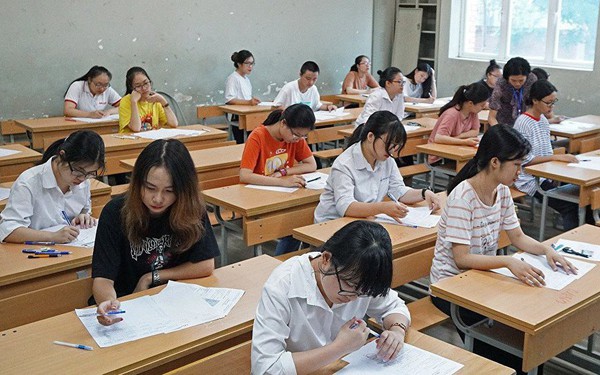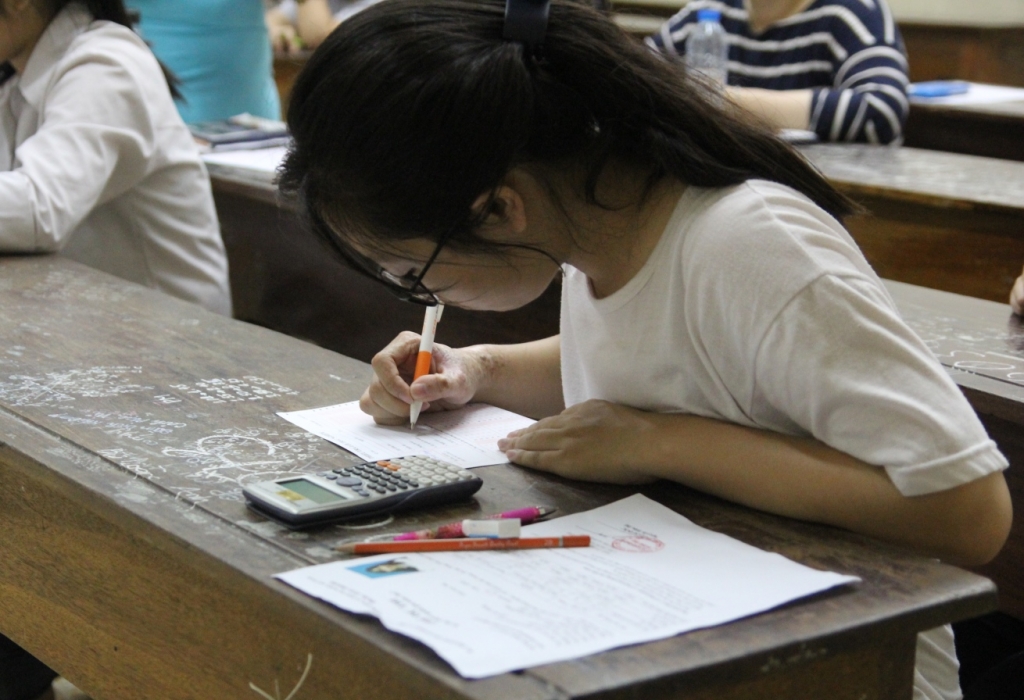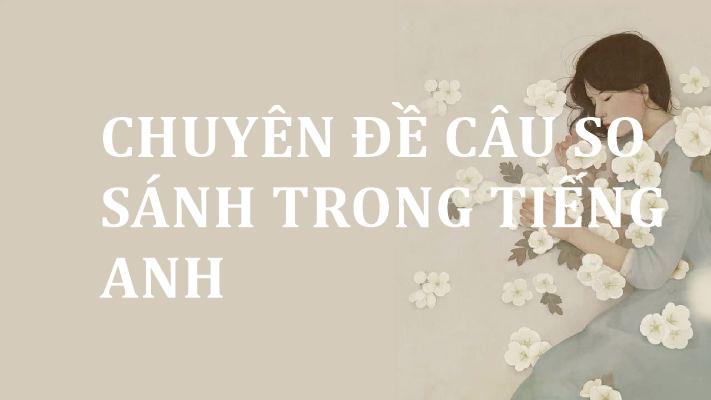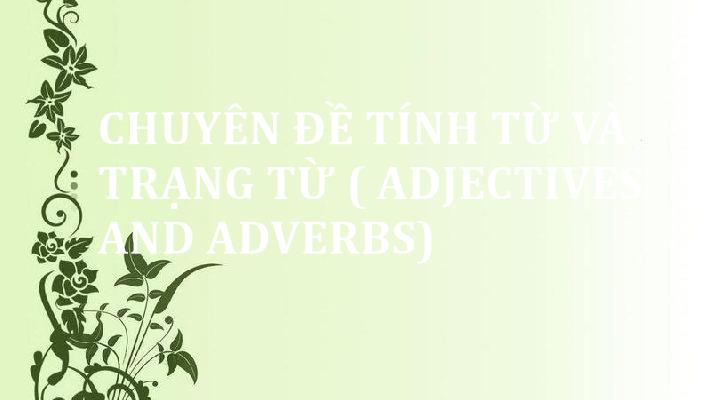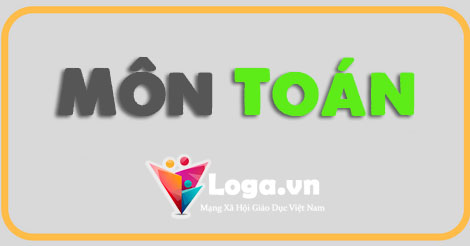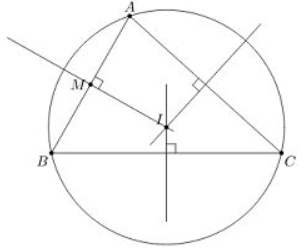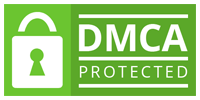ĐỀ SỐ 1
Mark the letter A, B, C, or D on your answer sheet to indicate the word whose underlined part differs from the other three in pronunciation in each of the following questions.
Question 1. A. heavy B. head C. weather D. easy
Question 2. B. processed B. infested C. balanced D. reached
Mark the letter A, B, C, or D on your answer sheet to indicate the word that differs from the other three in the position of the primary stress in each of the following questions.
Question 3. A. applicant B. preference C. courteous D. appointment
Question 4. A. interviewer B. concentrate C. comfortable D. technology
Mark the letter A, B, C, or D on your answer sheet to indicate the word or phrase CLOSEST in meaning to the underlined word(s) in each of the following questions.
Question 5. Who will replace you to monitor the class on the days you are on duty next week?
A. support B. undermine C. vandalize D. manage
Question 6. We, the young, should take actions to raise people’s awareness of being concerned with sewage processing measures from now on.
A. indifferent to B. carefree with C. interested in D. nervous about
Mark the letter A, B, C, or D on your answer sheet to indicate the word or phrase OPPOSITE in meaning to the underlined word(s) in each of the following questions.
Question 7. That is a well-behaved boy whose behavior has nothing to complain about.
A. behaving cleverly B. behaving nice
C. behaving improperly D. good behavior
Question 8. I must have a watch since punctuality is imperative in my new job.
A. being courteous B. being cheerful
C. being efficient D. being late
Mark the letter A, B, C, or D on your answer sheet to indicate the underlined part that needs correction in each of the following questions.
Question 9. The longest mountain range, the Mid-Atlantic Range, is not hardly visible because most of it lies under the ocean.
A. mountain range B. not hardly C. most of D. under
Question 10. The abilities to work hard, follow directions, and thinking independently are some of the criteria for success in the workplace.
A. to work B. thinking C. are D. for success
Question 11. Establishing in 1984 for students who wanted to study art and music subjects, LaGuardia was the first public school of its kind.
A. Establishing B. for students C. was D. of its kind
Mark the letter A, B, C, or D on your answer sheet to indicate the correct answer to each of the following questions.
|
ĐỀ THI 01 |
|
60 phút |
|
50 câu |
 Question 12. We all believe that a happy marriage should be mutual love.
Question 12. We all believe that a happy marriage should be mutual love.
A. based on B. concerned with C. confided in D. obliged to
Question 13. The teachers are, at the moment, trying their best all the necessary that their students may need for their critical examination while, sadly, some do not seem to appreciate that.
A. to prepare B. prepared C. preparing D. prepare
Question 14. A lot of skills and knowledge fields .
A. be prepared and practiced B. have to be prepared and practiced
C. prepared and practiced D. have to be being prepared and practiced
Question 15. We arranged to meet at the station, but she didn’t .
A. get through B. turn up C. walk out D. wait on
Question 16. Our professor said we should turn in the assignment on Friday.
A. specific B. specifically C. specifying D. specifyingly
Question 17. They were 30 minutes late because their car down.
A. got B. put C. cut D. broke
Question 18. Scientists warn that many of the world’s great cities are flooding.
A. being B. at risk C. in danger of D. endangered Question 19. The replacement of shops such as groceries’ and chemist’s by cafes the housewives with insufficient facilities for shopping.
A. leave B. have left C. has left D. to have left Question 20. I studied English for four years in high school. had trouble talking with people when I was traveling in the US.
A. Therefore, I B. Otherwise, I C. Although I D. However, I
Question 21. My uncle was ill last summer; however, fortunately, he is now making a slow but steady recovery.
A. seriously B. deeply C. fatally D. critically
Question 22. If you want your son to do better on his exams, I suggest he harder.
A. will study B. studies C. would study D. study
Question 23. the book, please return it to me.
A. Should you find B. Will you be finding
C. Will you find D. Will you have found
Mark the letter A, B, C, or D on your answer sheet to indicate the most suitable response to complete the following exchanges.
Question 24. Mary invited her friend, Sarah, to have dinner out that night and Sarah accepted. Mary: “Shall we eat out tonight?” – Sarah: “ .”
A. That’s a great idea B. That’s acceptable
C. You are very welcome D. It’s kind of you to invite
Question 25. “Thank you for taking the time to come here in person.” – “ ”
A. It’s my pleasure. B. I don’t know what time that person comes.
C. I’d love to come. What time? D. Do you have time for some gossip?
Mark the letter A, B, C, or D on your answer sheet to indicate the sentence that is closest in meaning to each of the following sentences.
Question 26. You could not have made a very good impression on them.
- You seem to have impressed them very unfavourably.
- It’s impossible that the effect you made on them was particularly positive.
- Something appears to have made them think you are unsuitable.
- You should have tried harder to make them think well of you.
Question 27. Due to the heavy snow, all buses have been cancelled until further notice.
- If it weren’t for the heavy snow, you would notice how much further the bus had to go.
- The buses would not have been cancelled if only it had not snowed so much.
- Heavy snow has caused the buses to stop running, though there will be an announcement of when they will start up again.
- If this snow keeps up, there will be an announcement to declare that the buses will no longer run.
Question 28. It’s more than a couple of years since I last went there.
- I have never stayed there for longer than two years.
- It was only after two years that I went there again.
- I haven’t been there since my visit over two years ago.
- I had never been there until the year before last.
Mark the letter A, B, C, or D on your answer sheet to indicate the sentence that best combines each pair of sentences in the following questions.
Question 29. The referee brought the football game to a halt. He blew his whistle.
- The referee stopped playing football and blowing his whistle.
- The referee stopped the football game before he blew his whistle.
- Having stopped the football match, the referee blew his whistle.
- The referee brought the football game to a halt by blowing his whistle.
Question 30. We planned to visit Eiffel Tower in the afternoon. We could not afford the fee, however.
- As planned, we could not afford the visit to Eiffel Tower in the afternoon because of the fee.
- We visited Eiffel Tower in the afternoon though the fee was too high for us.
- We were going to visit Eiffel Tower in the afternoon but the fee was too high for us.
- The fee was, however, high enough for us to plan a visit to Eiffel Tower in the afternoon.
Read the following passage and mark the letter A, B, C, or D on your answer sheet to indicate the correct word or phrase that best fits each of the numbered blanks from 31 to 35.
Speech is one of the most important (31) of communicating. It consists of far more than just making noises. To talk and also to (32) _ by other people, we have to speak a language, that is, we have to use combinations of sounds that everyone agrees to stand for a particular object or idea, Communication would be impossible if everyone made up their own language.
Learning a language properly is very (33) . The basic vocabulary of English is not very large, and only about 2,000 words are needed to speak it quite (34) . But the more idea you can express, the more precise you can be about their exact meaning.
Words are the main thing we use in communicating what we want to say. The way we say the words is also very important. Our tone of voice can express many emotions and (35) whether we are pleased or angry, for instance.
Question 31. A. rules B. reasons C. ways D. tests Question 32. A. be understood B. be spoken C. be examined D. be talked Question 33. A. easy B. expensive C. simple D. important Question 34. A. perfect B. good C. well D. fluent Question 35. A. know B. show C. ask D. understand
Read the following passage and mark the letter A, B, C, or D on your answer sheet to indicate the correct answer to each of the questions from 36 to 42.
COLORS AND EMOTIONS
Colors are one of the most exciting experiences in life. I love them, and they are just as important to me as emotions are. Have you ever wondered how the two are so intimately related?
Color directly affects your emotions. Color both reflects the current state of your emotions, and is something that you can use to improve or change your emotions. The color that you choose to wear either reflects your current state of being, or reflects the color or emotion that you need.
The colors that you wear affect you much more than they affect the people around you. Of course they also affect anyone who comes in contact with you, but you are the one saturated with the color all day! I even choose items around me based on their color. In the morning, I choose my clothes based on the color or emotion that I need for the day. So you can consciously use color to control the emotions that you are exposed to, which can help you to feel better.
Color, sound, and emotions are all vibrations. Emotions are literally energy in motion; they are meant to move and flow. This is the reason that real feelings are the fastest way to get your energy in motion. Also, flowing energy is exactly what creates healthy cells in your body. So, the fastest way to be healthy is to be open to your real feelings. Alternately, the fastest way to create disease is to inhibit your emotions.
Question 36. What is the main idea of the passage?
- Colorful clothes can change your mood
- Emotions and colors are closely related to each other.
- Colors can help you become healthy.
- Colors are one of the most exciting.
Question 37. Which of the following can be affected by color?
A. Your need for thrills B. your friend's feelings
C. your appetite D. your mood
Question 38. Who is more influenced by colors you wear?
- The people around you are more influenced.
- No one is influenced.
- You are more influenced.
- The people who wear those colors, not you.
Question 39. According to this passage, what creates disease?
A. wearing the color black B. exposing yourself to bright colors
C. being open to your emotions D. ignoring your emotions
Question 40. The term “intimately” in paragraph 1 is closest in meaning to
A. clearly B, closely C. obviously D. simply
Question 41. The term “they” in paragraph 3 refers to
A. emotions B. people C. colors D. none of the above
Question 42. Why does the author mention that color and emotions are both vibrations?
- to show how color can affect energy levels in the body.
- Because they both affect how we feel.
- to prove the relationship between emotions and color.
- Because vibrations make you healthy.
Read the following passage and mark the letter A, B, C, or D on your answer sheet to indicate the correct answer to each of the questions from 43 to 50.
Although they are an inexpensive supplier of vitamins, minerals, and high-quality protein, eggs also contain a high level of blood cholesterol, one of the major causes of heart diseases. One egg yolk, in fact, contains a little more than two-thirds of the suggested daily cholesterol limit. This knowledge has driven egg sales to plummet in recent years, which in turn has brought about the development of several alternatives to eating regular eggs. One alternative is to eat substitute eggs. These eggs substitutes are not really eggs, but they look somewhat like eggs when they are cooked. They have the advantage of having low cholesterol rates, and they can be scrambled or used in baking. One disadvantage, however, is that they are not good for frying, poaching, or boiling. A second alternative to regular eggs is a new type of egg, sometimes called "designer" eggs. These
eggs are produced by hens that are fed low-flat diets consisting of ingredients such as canola oil, flax, and rice bran. In spite of their diet, however, these hens produce eggs that contain the same amount of cholesterol as regular eggs. Yet, the producers of these eggs claim that eating their eggs will not raise the blood cholesterol in humans.
Eggs producers claim that their product has been portrayed unfairly. They cite scientific studies to back up their claim. And, in fact, studies on the relationship between eggs and human cholesterol levels have brought mixed results. It may be that is not the type of eggs that is the main determinant of cholesterol but the person who is eating the eggs. Some people may be more sensitive to cholesterol derived from food than other people. In fact, there is evidence that certainly dietary fats stimulate the body’s production of blood cholesterol. Consequently, while it still makes sense to limit one’s intake of eggs, even designer eggs, it seems that doing this without regulating dietary fat will probably not help reduce the blood cholesterol level.
Question 43. What is the main purpose of the passage?
- To introduce the idea that dietary fat increases the blood cholesterol level.
- To make people know about the relationship between eggs and cholesterol.
- To persuade people that eggs are unhealthy and should not be eaten.
- To convince people to eat “designer” eggs and egg substitutes.
Question 44. What has been the cause for changes in the sale of eggs?
A. Increasing price B. Decreased production
C. Dietary changes in hens D. Concerns about cholesterol
Question 45. What is meant by the phrase "mixed results"?
A. The results are blended. B. The results are a composite of things.
C. The results are inconclusive. D. The results are mingled together.
Question 46. Which of the following could best replace the word “somewhat”?
A. in fact B. a little C. indefinitely D. a lot
Question 47. According to the passage, one yolk contains approximately what fraction of the suggested daily limit for human consumption of cholesterol?
A. 3/4 B. 2/3 C. 1/2 D. 1/3
Question 48. The word "portrayed" could best be replaced by which of the following?
A. studied B. destroyed C. tested D. described
Question 49. What is the meaning of "back up"?
A. reverse B. advance C. block D. support
Question 50. According to the passage, egg substitutes cannot be used to make any of the following types of eggs EXCEPT .
A. boiled B. poached C. scrambled D. fried
ĐÁP ÁN ĐỀ THI MẪU SỐ 1
Câu 1. Đáp án D
A. heavy /ˈhevi/ B. head /hed/
C. weather /ˈweðə(r)/ D. easy /ˈiːzi/
Câu 2. Đáp án B
A. processed /ˈprəʊsest/ B. infested /ɪnˈfestid/
C. balanced /ˈbælənst/ D. reached /riːtʃt/
Giải thích: Các động từ có tận cùng là các phụ âm vô thanh /p/, /k/, /f/, /s/, /ʃ/, /tʃ/, khi thêm “ed” ta phát âm “ed” là /t/, các động từ có âm tận cùng là /t/ và /d/ khi thêm “ed” ta phát âm “ed” là /id/, còn lại các động từ có âm tận cùng là phụ âm hữu thanh và các nguyên âm ta phát âm âm “ed” là /d/ Câu 3. Đáp án D
A. applicant /ˈæplɪkənt/ B. preference /ˈprefrəns/
C. courteous /ˈkɜːtiəs/ D. appointment /əˈpɔɪntmənt/
Câu 4. Đáp án D
A. interviewer /ˈɪntəvjuːə(r)/ B. concentrate /ˈkɒnsntreɪt/
C. comfortable /ˈkʌmftəbl/ D. technology /tekˈnɒlədʒi/
Câu 5. Đáp án D
- support /səˈpɔːt/ cổ vũ; ủng hộ
- undermine /ˌʌndəˈmaɪn/ làm suy yếu;
- vandalize /ˈvændəlaɪz/ có chủ ý làm hỏng, phá hoại của công
- monitor /ˈmɒnɪtə(r)/ = manage /ˈmænɪdʒ/ điều khiển, giám sát
Câu 6. Đáp án C
- indifferent to /ɪnˈdɪfrənt/ không có gì quan trọng đối với...
- carefree with /ˈkeəfriː/ thảnh thơi, không lo lắng, vô lo, vô nghĩ
- interested in /ˈɪntrəstɪd/ = concerned with /kənˈsɜːnd/ quan tâm tới vấn đề gì
- nervous about /ˈnɜːvəs/ lo lắng về...
Câu 7. Đáp án C: "well-behaved": cư xử đúng đắn, đúng mực >< trái nghĩa là "behaving improperly”: cư xử không đúng mực, không đúng cách
behaving cleverly: cư xử một cách thông minh behaving nice: cư xử đẹp
good behavior: cách xử sự tốt, đúng
Câu 8. Đáp án D. "punctuality” /ˌpʌŋktʃuˈæləti/ sự đúng giờ >< trái nghĩa là "being late": chậm trễ being courteous /ˈkɜːtiəs/ lịch sự, nhã nhặn
being cheerful /ˈtʃɪəfl/ vui vẻ being efficient /ɪˈfɪʃnt/ hiệu quả
Câu 9. Đáp án B
Hardly = hầu như không
"not" và "hardly" không đứng cạnh nhau vì "hardly” đã mang nghĩa phủ định, nên động từ cần chia dạng khẳng định
Sửa lại: bỏ "not"
Câu 10. Đáp án B
Khi liệt kê động từ, trước "and" là dạng động từ gì thì sau nó là dạng động từ ấy. Ở đây, trước "and" là dạng V -follow- thì sau nó cũng phải là V → think.
Dịch: Khả năng làm việc chăm chỉ, làm theo định hướng và suy nghĩ độc lập là những tiêu chuẩn để thành công tại công sở.
Câu 11. Đáp án A: Rút gọn mệnh đề quan hệ dạng bị động (do chủ ngữ là vật: school).
Sửa: establishing → established.
Câu 12. Đáp án A
Be based on + N = dựa vào cái gì To be concerned with: quan tâm tới To be obliged to: có nghĩa vụ
Câu 13. Đáp án A
Try to do sth: cố gắng làm gì
Try their best to prepare: cố gắng hết sức để chuẩn bị
Câu 14. Đáp án B: ‘Skills and knowledge fields’ là hai danh từ làm chủ ngữ nhưng được thực hiện bởi người khác nên ta cần dùng thể bị động: have to + V → sang bị động là have to + be + V(PII)
Đáp án A động từ "be" chưa được chia;
Đáp án C dùng sai thể chủ động Đáp án D sai ngữ pháp
Câu 15. Đáp án B
Turn up = xuất hiện, có mặt
Get through: kiểm tra, thực hiện được việc gì Walk out: đi ra
Wait on: phục vụ (khách hàng) ở nhà hàng, cửa hàng, chờ đợi điều gì đó đặc biệt sẽ đến
Câu 16. Đáp án B
Chỗ trống cần điền một trạng từ, nhấn mạnh có động từ, mô tả cách thức mà vị giáo sư nói. Mà trạng từ của những tính từ có đuôi “ic” khi sang trạng từ thêm “cally”, nên đáp án B đúng.
Đáp án A là 1 tính từ: specific /spəˈsɪfɪk/: cụ thể Đáp án C, và D không đúng cách biến đổi trạng từ
Câu 17. Đáp án D
Break down: hỏng hóc, suy nhược, òa khóc (quá khứ: broke down) Cut down: cắt bớt, giảm bớt
Put down: hạ xuống
Get down: đi xuống, ghi lại, giảm bớt, làm thất vọng
Câu 18. Đáp án C: In danger of: đang có nguy cơ
Câu 19. Đáp án C: Hành động đã xảy ra trong quá khứ và còn đang tiếp diễn ở hiện tại => chia ở
hiện tại hoàn thành.
Câu 20. Đáp án D Therefore = bởi vậy Otherwise = nếu không
Although = mặc dù However = tuy nhiên
Câu 21. Đáp án A seriously ill: ốm nặng
Câu 22. Đáp án D Cấu trúc gợi ý: S + suggest + (that) + S1 + V (bare - inf).
Câu 23. Đáp án A. Câu điều kiện loại I rút gọn If, với cấu trúc: Should + S + V, S + will + V. Trong câu này, vế chính sử dụng câu mệnh lệnh.
Câu 24. Đáp án A
Shall we eat out tonight? - Chúng ta sẽ ra ngoài ăn vào tối nay chứ? - Shall we + V? là một lời
đề nghị, gợi ý nên cần một lời đáp xem đồng ý hay không.
Đáp án là A. That’s a great idea. - Ý kiến hay đấy. - Chỉ sự đồng tình.
Câu 25. Đáp án A
“Thank you for taking the time to come here in person: Cám ơn anh đã bớt chút thời gian trực tiếp đến đây.” là một lời cám ơn ai vì đã làm gì. Đổ đáp lời cám ơn ta có những cách nói như:
It’s my pleasure./ It's OK./ Not at all./ No problem./ That’s fine!/ That's alright!
Đáp án B: Tôi không biết mấy giờ người đó đến. → Không phù hợp tình huống Đáp án C: I'd love + to V: tỏ ý muốn, thích làm gì: Tớ muốn, mấy giờ nhỉ! → chỉ đáp lời mời, gợi ý
Đáp án D: Bạn có chút thời gian buôn chuyện không? → Không phù hợp tình huống
Câu 26. Đáp án B
Câu cho sẵn: cấu trúc could not have done sth: nói phỏng đoán về việc đã xảy ra ở Quá khứ, “Có thể là bạn đã không gây ấn tượng tốt với họ.”
Câu viết lại dùng: It’s impossible that + mệnh đề ở thì Quá khứ: Không thể là...
Câu 27. Đáp án C
Câu cho sẵn: Due to + Cụm danh từ: Bởi vì... (Bởi vì tuyết dày nên tất cả xe buýt bị hủy cho tới khi có thêm thông báo.)
Câu viết lại: cấu trúc Sth cause sth to do sth: Cause sth to stop doing sth: làm cho cái gì đó ngừng hoạt động. (Tuyết dày đã khiến các xe buýt ngừng hoạt động mặc dù sẽ có thêm thông báo về việc khi nào sẽ hoạt động trở lại.)
Câu 28. Đáp án C
Câu cho sẵn: Cấu trúc: It's + khoảng thời gian + since + mệnh đề ở Quá khứ/hoặc 1 mốc thời gian ở Quá khứ. (Đã vài năm rồi kể từ lần cuối cùng tớ đến đó.)
Câu viết lại: Cấu trúc: S + haven’t/hasn’t + V(PII) + since + mệnh đề ở quá khứ/hoặc mốc thời gian ở Quá khứ. (Tớ không tới đó kế từ chuyến thăm cuối cùng của tớ 2 năm trước.)
Câu 29. Đáp án D. Câu cho sẵn: Trọng tài kết thúc trận đấu. Ông ấy thổi còi.
Kết hợp hai câu nói hình thức kết thúc trận đấu, bằng cách thổi còi để mọi người biết trận đấu đã kết thúc. By + V_ing: bằng cách...
Câu 30. Đáp án C
Câu cho sẵn: Chúng tôi đã lên kế hoạch đi thăm Tháp Eiffel vào buổi chiều, tuy nhiên (however), chúng tôi không có đủ tiền để trả tiền phí vào cửa tham quan (can’t afford + N: không đủ khả năng về tài chính để làm gì. Thể quá khứ của "can’t” là "couldn’t")
Viết lại câu ta dùng liên từ "but” để chỉ sự đối lập, và cấu trúc too + adj + to V: quá ...để làm
gì...
Câu 31. Đáp án C. Way = cách thức, đường lối. Rule = quy tắc. Reason = nguyên nhân. Test = bài kiểm tra
Câu 32. Đáp án A. Hình thức bị động: be + past participle. To talk and to be understood by other people = để nói chuyện và đế được người khác hiểu
Câu 33. Đáp án D. Important = quan trọng (Đoạn văn đang đề cập tới vai trò của học ngoại ngữ). Easy = dễ. Expensive = đắt. Simple = đơn giản
Câu 34. Đáp án C. Trạng từ (well) đứng sau dộng từ để bổ nghĩa cho động từ ấy. Speak ...well = nói (cái gì đó) tốt
Câu 35. Đáp án B. Show = thể hiện, cho thấy. Know = biết. Ask = hỏi. Understand = hiểu. Dịch: ngữ điệu của chúng ta có thể thể hiện rất nhiều cảm xúc, ví dụ như thể hiện rằng chúng ta đang vui hay bực
Câu 36. Đáp án B. Thông tin ở ngay đoạn đầu tiên và một số câu ở đoạn 2: "Colors are one of the most exciting experiences in life. I love them, and they are just as important to me as emotions are. Have you ever wondered how the two are so intimately related?
Color directly affects your emotions. Color both reflects the current state of your emotions, and is something that you can use to improve or change your emotions."
Câu 37. Đáp án D. Thông tin ở đầu đoạn 2: "Color directly affects your emotions. Color both reflects the current state of your emotions, and is something that you can use to improve or change your emotions.” (mood = emotion)
Câu 38. Đáp án C. Thông tin ở cuối đoạn 2: "The color that you choose to wear either reflects your current state of being, or reflects the color or emotion that you need."
Câu 39. Đáp án D. Thông tin ở câu cuối của bài: "Alternately, the fastest way to create disease is to inhibit your emotions."
Câu 40. Đáp án B. "intimately" = "closely": một cách mật thiết, thân thiết
A. clearly: một cách rõ ràng
- obviously: rõ ràng là
- simply: một cách đơn giản
Câu 41. Đáp án C
"they" được thay thế cho "colors" trong câu: "The colors that you wear affect you much more than they affect the people around you.”
Màu sắc mà bạn mặc ảnh hưởng tới bạn nhiều hơn là (chúng) ảnh hưởng tới người quanh bạn.
Câu 42. Đáp án A
Thông tin ở câu số 2 và số 3 đoạn cuối cùng: "Emotions are literally energy in motion; they are meant to move and flow. This is the reason that real feelings are the fastest way to get your energy in motion.”
Câu 43. Đáp án B
Câu 1 đoạn 1: "Although they are an inexpensive supplier of vitamins, minerals, and high- quality protein, eggs also contain a high level of blood cholesterol, one of the major causes of heart diseases.”
Câu 44. Đáp án D
Thông tin ở câu: "in fact, contains a little more than two-thirds of the suggested daily cholesterol limit. This knowledge has driven egg sales to plummet in recent years,...”
Câu 45. Đáp án C. mixed results = các kết quả trái ngược nhau = The results are inconclusive
Câu 46. Đáp án B
A. sự thật B. một chút (a little = somewhat)
C. vô thời hạn D. nhiều
Câu 47. Đáp án B
"One egg yolk, in fact, contains a little more than two-thirds of the suggested daily cholesterol limit.”
Câu 48. Đáp án D
A. học B. phá huỷ
C. kiểm tra D. miêu tả (described = portrayed)
Câu 49. Đáp án D
A. đảo ngược B. tiến
C. chặn D. hỗ trợ support = back up
Câu 50. Đáp án C
C → được đề cập tới trong bài
CHÚC CÁC BẠN HỌC BÀI TỐT !
NHỚ SHARE VÀ ỦNG HỘ CHO LOGA NHÉ

